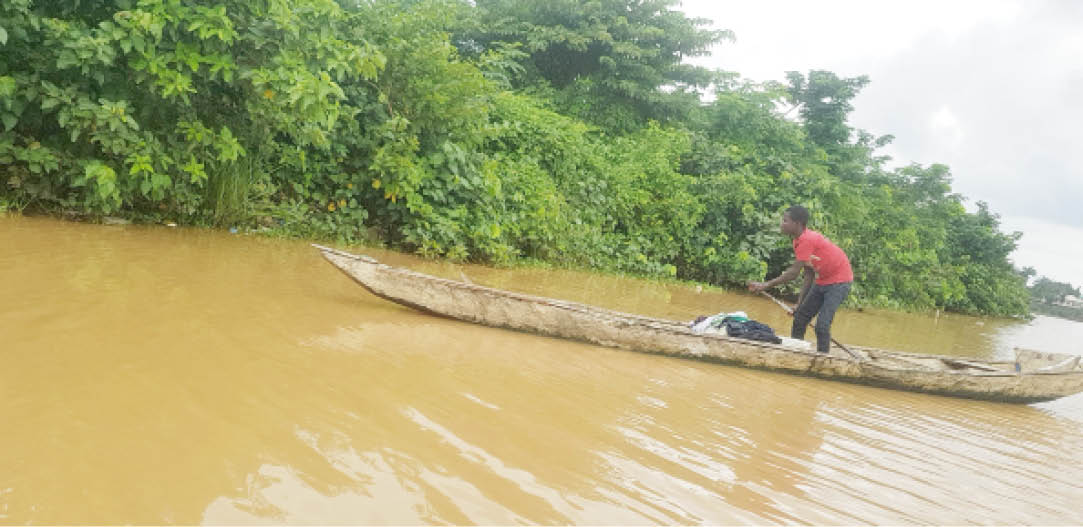Nigeria wants small scale fishers out of WTO subsidies discipline
The Federal Government has called for the exemption of small-scale and artisanal fishers from the scope of fisheries subsidies discipline under negotiation at the World Trade Organisation (WTO) by member nations. Otunba Adeniyi Adebayo, Minister of Industry, Trade and Investment, made the call in his submission at a virtual meeting of WTO Trade Negotiations Committee […]

A fisherman sets out to do his laundry on the lake
The Federal Government has called for the exemption of small-scale and artisanal fishers from the scope of fisheries subsidies discipline under negotiation at the World Trade Organisation (WTO) by member nations.
Otunba Adeniyi Adebayo, Minister of Industry, Trade and Investment, made the call in his submission at a virtual meeting of WTO Trade Negotiations Committee (TNC) at the ministerial level on fisheries subsidies on Thursday.
- Why Buhari didn’t attend Attahiru, others’ burial – Presidency
- Student found dead with bullet, stab wounds in own apartment
Adebayo affirmed Nigeria’s commitment and support to the agreement to prohibit certain forms of fisheries subsidies that had resulted in rapid depletion of global marine fish stocks.
“I assure you of Nigeria’s support to proactively engage with all members toward achieving a balanced outcome in line with our mandate to conclude an agreement to prohibit fisheries subsidies that contribute to overcapacity and overfishing.’’
He promised that such engagement would eliminate subsidies that contribute to Illegal, Unreported and Unregulated (IUU) fishing, and refrain from introducing new such subsidies.
He said it would ensure recognition “that appropriate treatment for developing countries and least developed countries should be an integral part of the WTO fisheries subsidies negotiation”.
Adebayo also said Nigeria would be happy to negotiate on appropriate special and differential treatment provisions for developing countries and least developed countries.
He stressed that the sustainable development of the fisheries sector would be a viable route to member states socioeconomic development given the sector contribution to food and livelihood security improvement.
However, he noted that illegal fishing, overfishing and overcapacity, as well as other unsustainable fishing and fishing related activities incentivised by heavy subsidisation posed threat to ongoing efforts toward sustainable development of the sector.
“These unsustainable practices have resulted in rapid depletion of global marine fish stocks.
“After 20 years of negotiations, it is time for us to draw the curtain on the Fisheries Subsidies Negotiations.
“Nigeria would continue to support WTO D-G and show requisite flexibilities so we can collectively achieve balanced outcomes consistent with SDG 14.6 and our mandate,” he said.
The Minister expressed hope that the progress made so far, as contained in the revised Draft Consolidated Text of June 30, provided a good basis for a successful conclusion.
He said in view of the technicalities involved in the negotiations, as well as the urgency to expeditiously make progress, Nigeria’s participation would involve engagement by senior officials from the ministry and Ministry of Agriculture and Rural Development.
The meeting was attended by WTO’s Director-General, Dr Ngozi Okonjo-Iweala, Chair of the Negotiating Group on Rules, Amb. Santiago Wills of Colombia, 164 Trade Ministers of WTO members, ambassadors, including Nigeria’s ambassador to WTO, Dr Adamu Abdulahmid.(NAN)
